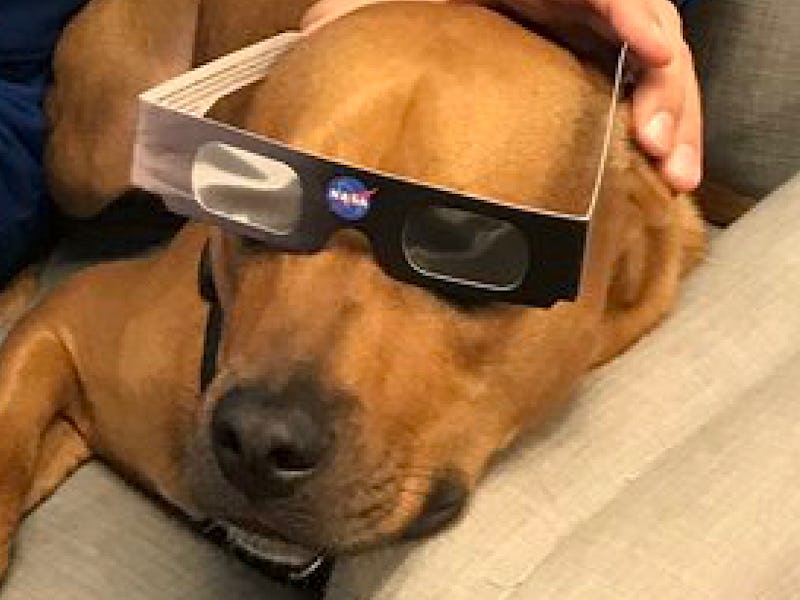Do Dogs Need Solar Eclipse Glasses? How to Keep Your Critters Safe on Monday
They'll be fine.

Not everything is a problem worth worrying about. There have been lots of warnings to humans in the path of the eclipse to not look directly at the sun, but that’s because we’re the kinds of foolish apes who drive miles and miles just to stare up at a dark fireball, which eons of experience tells us will burn out our retinas. Turns out, your pets don’t suffer from that kind of dangerous curiosity.
Still, amid all the (legitimate) hype around the need to equip humans with proper eclipse-viewing glasses, some people have — perhaps not unreasonably — come to wonder if the same applies to their pets.
But this is wildly unnecessary.
Inverse reached out to Emily Moeller, a veterinary ophthalmologist and surgeon with the Veterinary Specialty Hospital in San Diego. She said people really don’t need to worry.
“Long story short, a dog’s retina will be just as sensitive to photic damage as any person’s. The same protective measures would be required to prevent retinal damage while staring at the sun,” she wrote in an email. “Probably more importantly, most dogs don’t stare at the sun, eclipse or not, so it may not be an issue.”
Your pets, in general, simply don’t have the same fascination with celestial phenomena that their keepers do. So they’ll notice it has gotten darker, but just as when you turn the lights off in your home, they aren’t likely to investigate the cause. And if you live outside the path of totality like the vast majority of people, they likely won’t have any idea that anything’s going on — except that all the humans are really amped up about something.
Which isn’t to say that animals won’t have any reaction at all to the eclipse.
Hippos are known to change their behavior during an eclipse.
Many animals, including hippos, antelopes, and many birds, react to the onset of a total eclipse like the onset of evening. So pay attention to the natural world around you, and you may notice a sudden frenzy of nighttime behavior in the middle of the day.
The known possible exceptions to the “don’t worry” rule include our fellow great apes, cetaceans, and — bizarrely — llamas. As TIME reports, dolphins and whales have been observed leaping out of the water en masse as the sky darkens, chimps have been spotted gesticulating and staring at the covered sun, and a group of 15 llamas once appeared out of the blue to gaze at an eclipse with some humans.
So if you’re caring for any of those critters, maybe invest in some oversized viewing glasses. Otherwise, it’s all good.